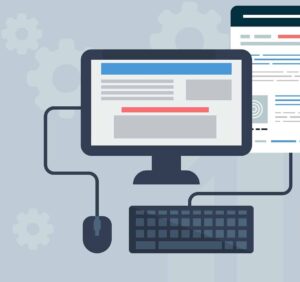
Introduction:
In today’s digital era, the internet serves as an invaluable tool for learning, research, and exploration. However, its unrestricted access can also lead to a myriad of distractions, potentially hindering students’ academic progress. This essay explores the necessity of implementing limited internet access for students, striking a balance between harnessing its benefits and mitigating its drawbacks.
Understanding the Educational Landscape in the Digital Age:
- The proliferation of technology has revolutionized the educational landscape, offering students unprecedented access to information.
- The internet facilitates diverse learning opportunities, from accessing academic resources to engaging in collaborative projects.
The Pitfalls of Unrestricted Internet Access:
- Unlimited access to the internet can lead to distractions such as social media, gaming, and irrelevant web browsing.
- Excessive screen time can adversely affect students’ concentration, cognitive abilities, and overall academic performance.
Fostering a Culture of Responsible Internet Usage:
- Implementing limited internet access encourages students to develop responsible digital citizenship.
- Setting boundaries cultivates self-discipline and time management skills essential for academic success.
Maximizing Educational Resources while Minimizing Distractions:
- Restricting internet access during designated study hours enables students to focus solely on academic tasks.
- Utilizing educational platforms and curated content ensures that students have access to relevant and enriching resources.
Promoting Offline Learning and Critical Thinking:
- Limited internet access encourages students to seek information through offline sources such as books, journals, and peer-reviewed articles.
- Engaging in offline activities fosters critical thinking, creativity, and problem-solving skills essential for holistic development.
Mitigating the Negative Impact of Digital Overload:
- Excessive exposure to digital devices and online content can have detrimental effects on students’ mental health and well-being.
- Implementing restrictions on internet usage helps alleviate digital fatigue and promotes a healthy balance between online and offline activities.
Empowering Educators in Digital Literacy Education:
- Educators play a pivotal role in guiding students towards responsible internet usage.
- Providing training and resources to teachers equips them with the necessary tools to integrate technology effectively into the curriculum while mitigating its negative impact.
Collaborative Efforts towards Effective Internet Governance:
- Collaboration between educational institutions, policymakers, and technology companies is essential in formulating guidelines and policies that promote safe and productive internet usage.
- Establishing partnerships ensures that internet access is optimized for educational purposes while safeguarding students against online risks.
Case Studies and Best Practices:
- Examining case studies of schools and institutions that have successfully implemented limited internet access policies can provide valuable insights.
- Identifying best practices enables stakeholders to replicate successful strategies and adapt them to their specific contexts.
Conclusion:
In conclusion, while the internet offers boundless opportunities for learning and exploration, its unrestricted access can pose significant challenges for students. Implementing limited internet access policies is essential in striking a balance between harnessing the benefits of technology and mitigating its drawbacks. By fostering a culture of responsible internet usage, promoting offline learning, and empowering educators, we can ensure that students maximize their academic potential while navigating the complexities of the digital age. Through collaborative efforts and informed decision-making, we can create a conducive learning environment where students thrive both online and offline.







